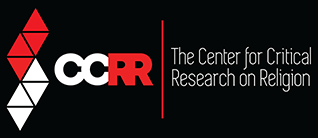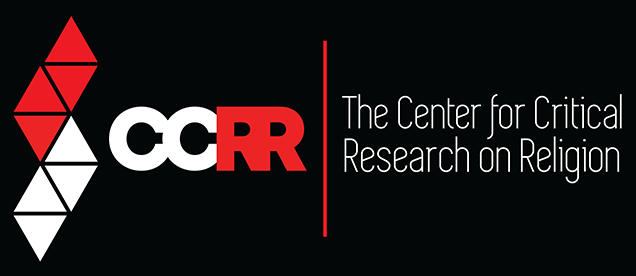Ahmed, Leila (1992) Women and Gender in Islam: Roots of a Modern Debate. New Haven: Yale University Press.
Beaman, Lori G (1999) Shared Beliefs, Different Lives: Women’s Identities in Evangelical Context. St. Louis: Chalice Press.
Butler Judith (1990) Gender Trouble: Feminism and the Subversion of Identity. New York: Routledge.
_______. (1993) Bodies that Matter: On the Discursive Limits of ‘‘Sex’’. New York: Routledge.
_______. (2004) Undoing Gender. New York: Routledge.
Daly, Mary (1968) The Church and the Second Sex. New York: Harper and Row.
_______. (1973) Beyond God The Father: Toward A Philosophy Of Women’s Liberation. Boston: Beacon Press.
Goldenberg, Naomi (1979): Changing of the Gods: Feminism and the End of Traditional Religion. Boston: Beacon Press.
_______. (1982): The End of God: Important Directions for a Feminist Critique of Religion in the Works of Sigmund Freud and Carl Jung. Ottawa: University of Ottawa Press.
_______. (1990): Returning Words to Flesh: Feminism, Psychoanalysis, and the Resurrection of the Body. Boston: Beacon Press.
_______. (1993): Resurrecting the Body: Feminism, Religion, and Psychoanalysis. New York: Crossroad.
Gross, Rita (1993) Buddhism after patriarchy: A feminist history, analysis, and reconstruction of Buddhism. Albany, NY: State University of New York Press.
_______. (1996) Feminism and Religion: An Introduction. Boston: Beacon Press.
Hewitt Marsha A (1995) Critical Theory of Religion: A Feminist Analysis. Minneapolis: Fortress.
Hollywood, Amy (1995) The Soul as Virgin Wife: Mechthild of Magdeburg, Marguerite Porete, and Meister Eckhart. Notre Dame: University of Notre Dame Press.
_______. (2002) Sensible Ecstasy: Mysticism, Sexual Difference, and the Demands of History. Chicago: University of Chicago Press.
Joy M, O’Grady K and Poxon JL (2002) French Feminists on Religion: A Reader. London: Routledge.
Joy, Morny; Neumaier-Dargyay, Eva K (Eds.) (1995) Gender, Genre and Religion: Feminist Reflections. Waterloo: Wilfrid Laurier University Press.
Juschka Darlene M (ed.) (2001) Feminism in the Study of Religion: A Reader. New York: Continuum.
_______. (2009) Political Bodies/Body Politic. London: Equinox.
Schüssler Fiorenza, Elisabeth (1985) Bread not Stone: ThemChallenge of Feminist Biblical Interpretation. Boston: Beacon Press
_______. (1985) Claiming the Center: A Feminist Critical Theology of Liberation. Minneapolis: Seabury.
_______. (1991). In Memory of Her: A Feminist Theological Reconstruction of Christian Origins. New York: Crossroads.
_______. (1992) But She Said: Feminist Practices of Biblical Interpretation. Boston: Beacon Press.
_______. (1993) Discipleship of Equals: A Critical, Feminist Ekklesia-logy of Liberation. New York: Crossroad Publishing.
_______. (1993) Searching the Scriptures; Volume I: A Feminist Introduction. New York: Crossroad.
_______. (ed.) (1994) Searching the Scriptures: Volume II: A Feminist-Ecumenical Commentary and Translation. New York: Crossroad.
_______. (1994) Jesus: Miriam’s Child, Sophia’s Prophet: Issues in Feminist Christology. New York: Continuum.
_______. (1996) The Power of Naming: A Concilium Reader in Feminist Liberation Theology. Maryknoll: Orbis Books
_______. (1999) Sharing Her Word: Feminist Biblical Interpretation in Context. Boston: Beacon Press.
_______. (2004) Grenzen überschreiten. Der theoretische anspruch feministischer theologie: Ausgewählte aufsätze. Münster: LIT Verlag.
_______. (2007) The Power of the Word: Scripture and the Rhetoric of Empire. Minneapolis: Fortress Press.
_______. (2009) Democratizing Biblical Studies: Toward an Emancipatory Educational Space. Louisville: Westminster John Knox Press.
_______. (2011) Transforming Vision: Explorations in Feminist The*logy. Minneapolis: Fortress Press.
Schüssler Fiorenza, Elisabeth; Carr, Anne E (1987): Women, Work and Poverty. Edinburgh: T. & T. Clark.

